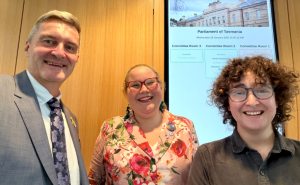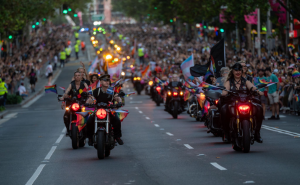
A landmark Australian study has found more than three quarters of LGBTQIA+ young people surveyed had experienced sexual harassment at work.
Funded by ANROWS, the national study undertaken with over 1000 young people aged 14 to 30 found that 77 per cent of LGBTQ young people have faced workplace sexual harassment, including inappropriate comments, intrusive questions, and jokes about their identities.
These incidents were often linked to their gender, age, and sexual orientation, with perpetrators exploiting harmful stereotypes and displaying anti-LGBTQ prejudice.
Other key findings include:
- 30% of respondents reported perpetrators threatened them with sexual violence as a means of “fixing” their gender or sexual orientation, a common experience for young women and those presumed female at birth.
- Most perpetrators were men who were older than the people they harassed and typically acted alone.
- 46% of perpetrators were co-workers, while 31% were clients or customers of the workplace.
“This is a wake-up call to overhaul workplace culture and policies immediately,” ANROWS CEO Tessa Boyd-Caine said.
“Every inappropriate joke, every intrusive question, every exploitative act pushes LGBTQ young people further from feeling and being safe at work. This must stop. A workplace free from sexual harassment is a responsibility we owe every LGBTQ young person.”
“Workplace sexual harassment has profound consequences on LGBTQ young people’s mental health, job security, and overall well-being,” researcher Dr. Cristyn Davies added.
“Young LGBTQ people with more than one marginalised identity were at greater risk of workplace sexual harassment.
“On this International Day of People with Disability, it’s important to acknowledge that 83 per cent of LGBTQ young people with a disability reported experiencing workplace sexual harassment, which was significantly more than those without a disability.”
The research revealed that LGBTQ young people often reported receiving minimal or no training on workplace sexual harassment. Overwhelmingly, those who had received workplace sexual harassment training said it was an unhelpful, tick-the-box exercise.
The report urged workplaces to implement comprehensive, inclusive training and create policies that foster respectful and safe environments.




